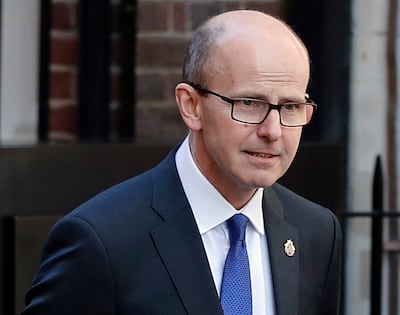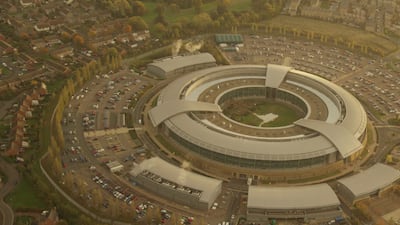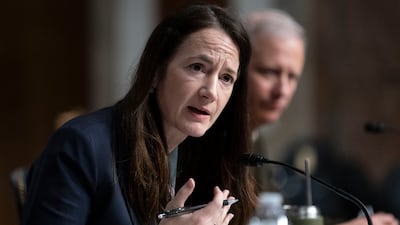American spy chief Avril Haines has said despite the unprecedented release of intelligence ahead of Russia's invasion of Ukraine, the Kremlin succeeded in framing worldwide perceptions of the conflict in early 2022.
Speaking to Ms Haines in a radio interview, Jeremy Fleming, head of the UK's Government Communications Headquarters (GCHQ), made the point that Ukraine represented a “sea change” in the release of secret intelligence to inform public debate.
While the US director of national intelligence concurred, she pointed to a failure to penetrate the Russia debate and Moscow's edge in the wider global perceptions battle.
“We were able to have an impact on the conversation about this and yet at the same time it is also clear as we look back at the situation our impact was far greater in the West than it was in other places in the world,” she said.
“When it came to Russia we had basically no impact. What we also saw was that we were not that impactful in other countries that had already taken on the narrative the Russians were pushing.
Mr Fleming said the release of details by western intelligence agencies of the Russian military build-up in the run up to the invasion had helped counter Moscow’s narrative that Ukraine was threatening its neighbour.

“There is no point in collecting it [secret intelligence] unless you use it,” Mr Fleming said. “The sea change we have seen during this conflict, getting the intelligence out there and using it to pre-bunk, to try and undermine that sort of narrative, I completely agree with that.
“But it is also the case that for much of the world they haven’t completely bought into that side of the argument. Much as we know it to be truthful, there are different and counter-narratives.”

While Ms Haines believes there was an effective western response to disinformation, she also admitted there were limits to the impact of that work.
“We obviously tried to counter the disinformation the Russians were putting out,” she said. “We saw that they were looking to create a pretext for the invasion and we wanted to debunk that and help people understand that this was a false narrative by finding ways to declassify certain information while still trying to protect our sources and methods.
“When you are pushing out information to a population that is already sceptical of you it is much harder to gain traction in those scenarios.”


